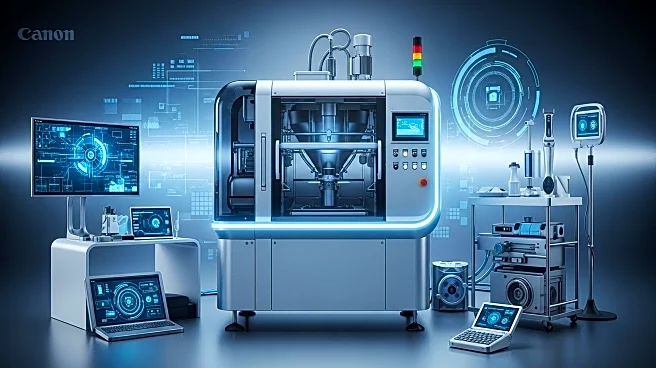What is the story about?
What's Happening?
The UK food and drink industry is facing challenges such as rising costs, labor shortages, and supply chain disruptions. To address these issues, manufacturers are increasingly adopting technology and smarter processes to boost productivity, reduce waste, and streamline compliance. Automation and digital solutions are becoming top investment priorities, with over half of manufacturers citing them as key areas for improvement. Despite these efforts, confidence in the sector remains low due to volatile global conditions and recent policy decisions. However, the industry is moving towards claiming a productivity prize worth between £7 billion and £14 billion.
Why It's Important?
The adoption of technology and smarter processes in the UK food and drink industry is crucial for maintaining competitiveness and meeting rising demand. By leveraging digital tools and automation, manufacturers can improve efficiency, reduce operational costs, and enhance compliance with regulations. This shift is essential for addressing labor constraints and volatile ingredient prices, which impact profitability and operational flexibility. As the largest manufacturing sector in the UK, the food and drink industry plays a significant role in the economy, supporting nearly 500,000 jobs and generating £148 billion in turnover.
What's Next?
The next wave of investment in the UK food and drink industry is expected to focus on areas that deliver the most impact, such as automation and digital solutions. Manufacturers will continue to explore ways to turn pressures into competitive advantages, using technology to improve efficiency and seize new growth opportunities. As the industry adapts to changing consumer trends and regulatory requirements, investment in innovation and transformation will be key to securing long-term operational stability.
Beyond the Headlines
The integration of technology in the food and drink industry reflects broader trends in manufacturing, including the push for digital transformation and process optimization. This approach not only addresses immediate challenges but also positions the industry for future growth and sustainability. As manufacturers navigate complex pressures, the ability to adapt and innovate will be crucial for maintaining competitiveness in a rapidly changing market.

















